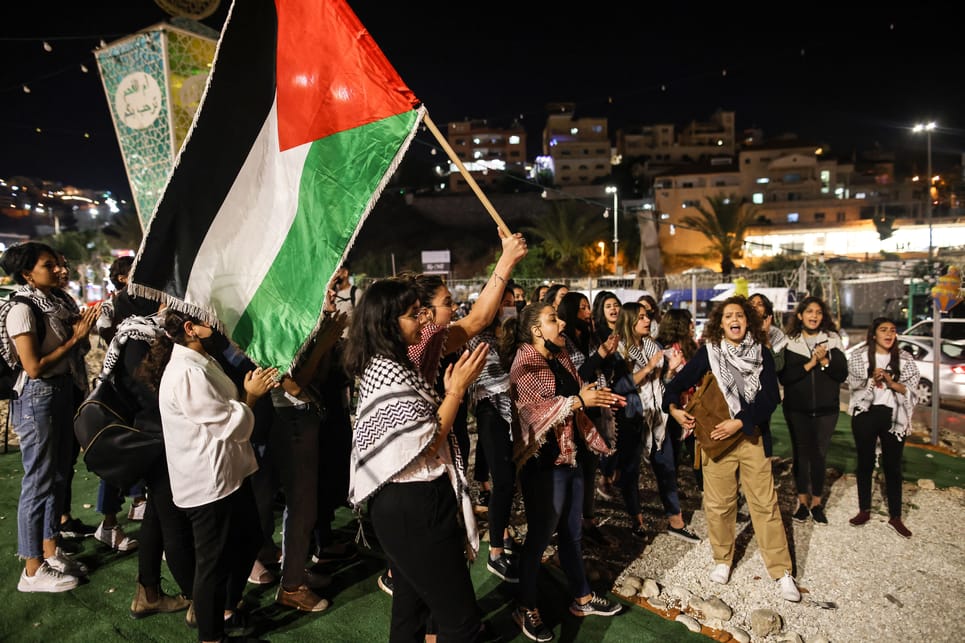INNOCENT VEREMU
The Genesis of a Protracted Struggle
The Israeli-Palestinian conflict, a labyrinthine and enduring geopolitical dispute, traces its roots back to the late 19th century. The birth of the Zionist movement ignited the flame of this conflict, advocating for a Jewish homeland in Palestine. This struggle has been punctuated by wars, uprisings, and acts of terror.
In October 2023, the conflict took a violent turn. Both sides engaged in a deadly exchange of rocket fire and airstrikes, triggered by the Israeli government’s decision to greenlight new settlements in the West Bank. Palestinians perceived this as a blatant violation of international law and an obstacle to their aspirations for statehood.
The Crux of the Conflict
The Israeli-Palestinian conflict is a Gordian knot with numerous intertwined causes:
Land and Sovereignty: Both Israelis and Palestinians lay claim to Palestine as their homeland. Israelis anchor their claim in biblical and historical narratives, while Palestinians base theirs on centuries-long habitation.
Jerusalem: A city sacred to both Israelis and Palestinians. Israelis declare Jerusalem as their capital, while Palestinians envision East Jerusalem as the heart of their future state.
Palestinian Refugee Crisis: The 1948 Arab-Israeli War displaced millions of Palestinians from their homes. Despite their right to return, the Israeli government has consistently denied them this right.
This conflict has oscillated between periods of violence and relative tranquility since time immemorial. However, recent years have seen the peace process come to a standstill due to irreconcilable differences, leading to widespread frustration and despair.
The War of October 2023: A Spark Ignites
The war in October 2023 was ignited by the Israeli government’s decision to approve new settlements in the West Bank. This move was seen by Palestinians as an affront to international law and a barrier to their dreams of statehood.
A Call for Global Solidarity
The Palestinians’ struggle for self-determination warrants global support as they grapple with Israeli settler colonialism, backed by the United States and its allies.
The American Dilemma: A One-Sided Affair?
The United States has a long history of supporting Israel. This is due to a number of factors, including the strong Jewish lobby in the United States and the shared values of democracy and human rights between the two countries. However, in recent years, there has been growing criticism of the United States' one-sided support for Israel. Some critics argue that the United States is not doing enough to pressure Israel to negotiate a peaceful settlement with the Palestinians.
Is oil involved?
Oil is not a major factor in the Israeli-Palestinian conflict. However, the conflict is located in a strategically important region of the world. The United States is concerned about the stability of the region and the potential for the conflict to escalate into a wider war.
How can we help without interference?
There are a number of ways to help the Israeli-Palestinian conflict without interfering in the internal affairs of either side. One way is to provide humanitarian assistance to the victims of the conflict. Another way is to support organizations that are working to promote peace and reconciliation between Israelis and Palestinians.
The side America supports is not the one Russia supports
The United States supports Israel, while Russia supports Palestine. This is a major geopolitical divide between the two countries.
The conflict between Israel and Palestine is a complex one with no easy solutions. The international community must work together to find a solution to the conflict that is both just and lasting.
Zimbabwe's stance
Zimbabwe has traditionally supported the Palestinian cause in the Israeli-Palestinian conflict.
In 2008, Zimbabwe recognized the State of Palestine. Zimbabwe also supports the Boycott, Divestment and Sanctions (BDS) movement against Israel.
However, in recent years, Zimbabwe’s relationship with Israel has improved. In 2018, Zimbabwe voted in favor of a UN resolution condemning Israel’s use of force against Palestinians.
Zimbabwe also abstained from a vote to condemn Israeli settlements in the West Bank.
It is unclear why Zimbabwe has abstained from some votes condemning Israel.
Some analysts have suggested that Zimbabwe is trying to balance its relationship with Israel and Palestine, while others have suggested that Zimbabwe is under pressure from Israel or its allies.
Overall, Zimbabwe’s position on the Israeli-Palestinian conflict is complex and evolving.
Zimbabwe has traditionally supported the Palestinian cause, but its relationship with Israel has improved in recent years.
It is unclear why Zimbabwe has abstained from some votes condemning Israel, but it is possible that Zimbabwe is trying to balance its relationship with the two sides or is under pressure from Israel or its allies























0 Comments